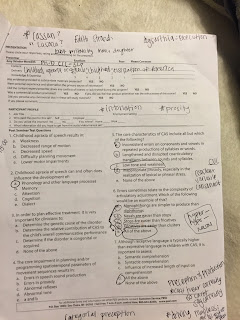
What are you most proud of in your block presentation and/or your senior project?Why?
- There are a few things I am very proud of, for one I am proud for hitting my time limit. I am also proud for being able to keep my audience engaged, and for keeping Mrs.Edwards amused. I proud of this because, without an engaged audience, the presentation can get awkward and boring and isn't fun for anyone.
(2) Questions to Consider
a. What assessment would you give yourself on your block presentation? Use the component contract to defend that assessment.
AE P AP CR NC
- I believe I deserve an AE because I dressed professionally, my audience was engaged and I believe my volume was loud and consistent. My hook also had the entire audience participating and my powerpoint was organized. I also had many cited sources and explain my answers very throughly and logically. Lastly, with my activities, I had a thorough debrief and when asked, no one had questions.
AE P AP CR NC
- I had all my sources, and I did well on my exit interview. I did well during my first and second lesson presentations and took criticism and suggestions and applied it to my final presentation.
- I believed what worked is that, my mentor and clinic were very accessible. I also felt that I could talk to my house and advisory house pretty comfortably. I received valuable feedback from peers and teachers and implemented them into my senior project. I believe also that it worked because I was willing to research a bunch of other things, not just my 3 answers.
(4) (What didn't work) If you had a time machine, what would you have done differently to improve your senior project?
- If I had a time machine, I would go back so I could start working on my presentation earlier so that I had more time to practice.
(5) Finding Value
How has the senior project been helpful to you in your future endeavors? Be specific and use examples
- Its made me realize that speech pathology is actually a very interesting career (topic), and that there are many things to learn about it. It made me have a greater appreciation for my mothers and grandmothers craft. I could also seriously consider speech pathology as a future career


















